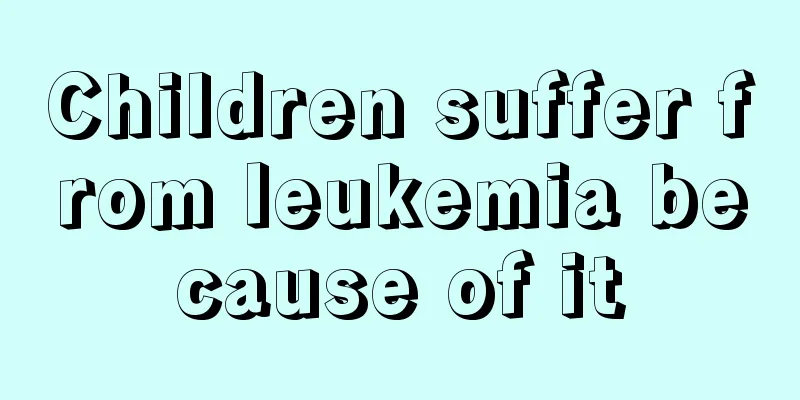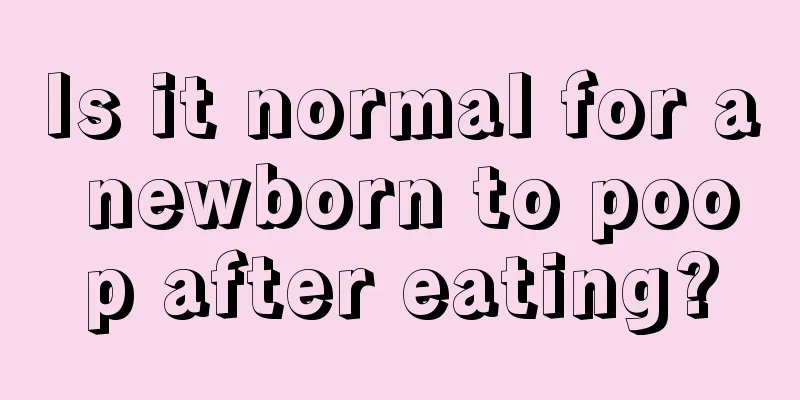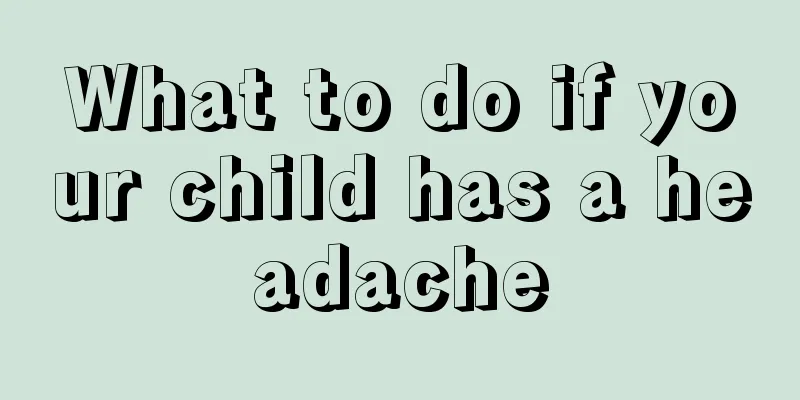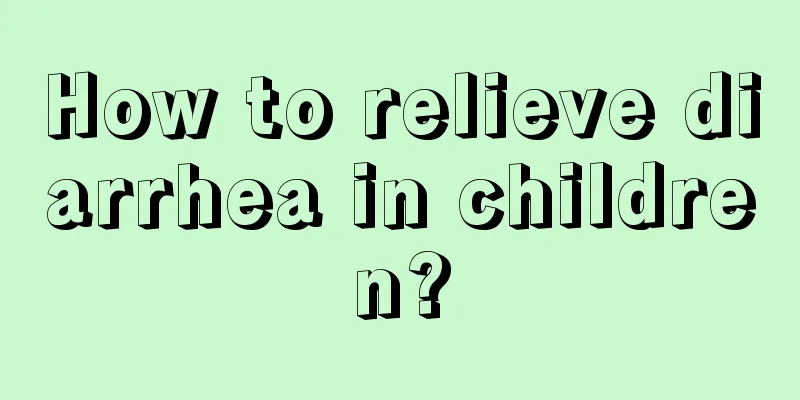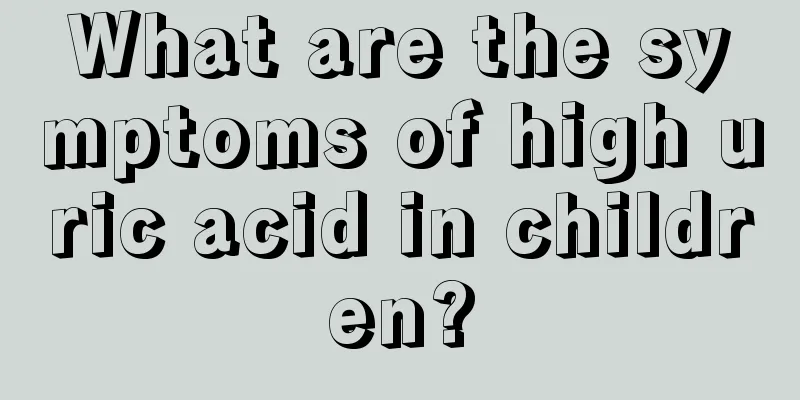What are the treatments for whooping cough in children?

|
The main reason for children to suffer from whooping cough is infection with Bordetella pertussis. This bacterium has a certain incubation period, which ranges from 5 to 21 days, so there are no symptoms at the beginning, and then symptoms similar to colds will appear, such as runny nose, sneezing and coughing, etc. The following are methods to treat whooping cough in children. 1. General treatment Keep the residence quiet, well ventilated, and avoid stimulation; pay attention to nutrition and make sure food is easily absorbed; use sedatives when necessary, such as chlorpromazine, promethazine, etc. Those who are seriously ill need someone to accompany them at all times. 2. Antimicrobial treatment The catarrhal stage is more effectively treated with antibiotics, and if well controlled, the disease can even be prevented from entering the spasmodic cough stage. If the disease progresses to the spasmodic cough stage before treatment, the course of the disease cannot be shortened. Commonly chosen drugs are: (1) Erythromycin Pathogens are highly sensitive, so this is the first choice. Dosage: 30-50 mg/kg/day. Route of administration: oral or intravenous. Treatment course: one to two weeks. (2) Roxithromycin It is a macrolide antibiotic like erythromycin. Dosage: 5-10 mg/kg/day (in 2 divided doses). Route of administration: Oral. Treatment course: one week to ten days. (3) Azithromycin Second generation macrolide antibiotics. Dosage: 10 mg/kg/day. Route of administration: Oral. Treatment course: 3 days. Roxithromycin and azithromycin have good oral effects and little irritation to the digestive tract, and can be used as appropriate according to the child's condition. 3. Treatment of complications (1) Pneumonia or bronchitis Give antibiotics. (2) Simple atelectasis Drainage or use of suction to remove sputum, or even a bronchoscope to "clear" the airways. (3) Encephalopathy If seizures occur, give promethazine or phenobarbital. In case of cerebral edema, 20% mannitol (1 gram/kg intravenous drip each time) can be used, and corticosteroids (such as dexamethasone) can be dripped intravenously if necessary. Immunoglobulin (15 ml/kg) can also be used, given intravenously. 4. Traditional Chinese Medicine Treatment (1) Initial cough stage Traditional Chinese medicine believes that this is caused by the human body being affected by external wind and heat, and the treatment principle should be clearing heat and resolving phlegm. Use mulberry and chrysanthemum drink, and add as appropriate: mulberry leaves, chrysanthemum, mint, forsythia, etc. to boil water for drinking. If the patient has a high fever, add Scutellaria baicalensis and Gypsum gypsum; if there is a lot of phlegm, add Gardenia jasminoides and Fritillaria cirrhosa. (2) Spasmodic cough stage According to traditional Chinese medicine theory, this is caused by phlegm blocking the lungs, and the lung heat should be cleared and the phlegm should be eliminated. Generally, Ma Xing Shi Gan Decoction is used, and dried tangerine peel, pinellia tuber, and bitter orange peel can be added if necessary. For those who sweat a lot, add more gypsum, scutellaria baicalensis, etc.; for patients with red eyes, add Scrophularia ningpoensis, Imperata cylindrica, etc. For patients with purulent sputum, Rhizoma Dictamni can be added to eliminate phlegm. (3) Recovery period At this stage, the human body's lungs and spleen are very weak, so the main focus should be on replenishing qi and nourishing yin, and regulating the lungs and spleen. To the ginseng and schisandra decoction, if necessary, add astragalus and raw oyster to replenish qi; add aster and Fritillaria cirrhosa to suppress cough. 5. First aid measures Diazepam, chlorpromazine, etc. can be used to fight convulsions; if sputum blocks the respiratory tract, a suction device can be used to suck out the sputum, and artificial respiration can be used to restore breathing. |
<<: Children often do these to prevent myopia
>>: What causes hydrocephalus in children?
Recommend
What should I do if my child has poor gastrointestinal absorption?
The digestive function of children's stomach ...
What is the cause of the baby's breathing difficulties?
Babies have weak immunity, and many accidents or ...
What should I do if a little girl’s urine is red?
The so-called urine generally refers to human uri...
How to deal with children's abrasions
Children are lively and active, and seem to have ...
What are the best treatments for acute laryngitis in children?
Many people think that acute laryngitis will not ...
What are the symptoms of a baby with high fever and convulsions?
The mother's womb is a relatively healthy and...
When your baby switches to breastfeeding, pay attention to these things
Babies who eat milk powder need to switch to milk...
What to do if newborns take too much calcium
Maybe many of our mothers blindly believe that ou...
What is the reason for the red spots on the baby's face?
We all know that babies' skin is relatively d...
How many days does it take for baby teeth to come out?
When babies are young, they need their parents to...
What is a teething stick?
Many parents will buy some teething sticks or bis...
What are the symptoms of mental retardation in babies?
As parents, we all hope that our children can gro...
The child always complains of dizziness
If our blood sugar is low, we will often experien...
Can children undergo gastroscopy?
The physical health of children is the most impor...
What should I do if my child has cavities?
Children's tooth decay has a lot to do with t...


